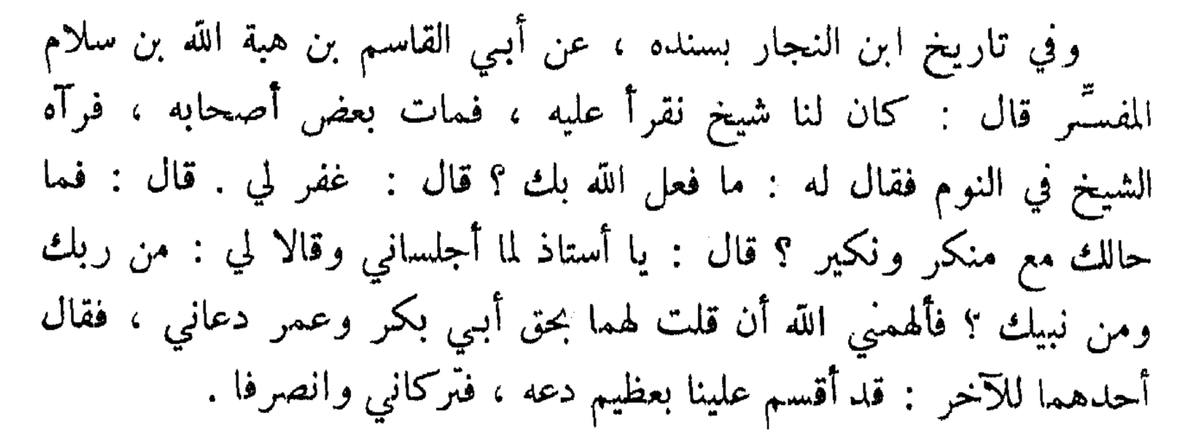
.:The ambassador of Tripoli:.
In March 1786, Thomas Jefferson and and John Adams visited London in order to negotiate with Tripoli's ambassador, Sīdī Hajjī Ábd al-Rahmān.
In March 1786, Thomas Jefferson and and John Adams visited London in order to negotiate with Tripoli's ambassador, Sīdī Hajjī Ábd al-Rahmān.
Thomas Jefferson wrote a letter to John Jay, dated March 28th 1786, regarding this meeting, in which he wrote:
“We took the liberty to make some inquiries concerning the Grounds of their pretentions to make war upon Nations who had done them no Injury,
“We took the liberty to make some inquiries concerning the Grounds of their pretentions to make war upon Nations who had done them no Injury,

and observed that we considered all mankind as our friends who had done us no wrong, nor had given us any provocation.
The Ambassador answered us that it was founded on the Laws of their Prophet, that it was written in their Koran,
The Ambassador answered us that it was founded on the Laws of their Prophet, that it was written in their Koran,
that all nations who should not have acknowledged their authority were sinners, that it was their right and duty to make war upon them wherever they could be found, and to make slaves of all they could take as Prisoners,
and that every Musselman who should be slain in battle was sure to go to Paradise.”
We see here that the Ambassador of Tripoli was educated in the rulings of offensive jihād, and he did not hold it to be only defensive, this would be because no such view existed at that point.
We see here that the Ambassador of Tripoli was educated in the rulings of offensive jihād, and he did not hold it to be only defensive, this would be because no such view existed at that point.
At that point in time there was still agreement of all Muslims, that offensive jihād was also mentioned and obligatory when conditions were met.
He did not say that offensive warfare was for political reasons, but rather for rejection of RasūlAllāh ﷺ.
He did not say that offensive warfare was for political reasons, but rather for rejection of RasūlAllāh ﷺ.
Whereas if we compare the American principle as mentioned by Thomas Jefferson, then this is the mindset and belief of many Muslims today, including the hypocrites who call themselves scholars.
We observe that peace and defensive warfare was the way of the Americans,
We observe that peace and defensive warfare was the way of the Americans,
whereas offensive warfare and then enslavement of the infidels after victory was the way of the Muslims.
The modern-day preachers can attempt to conceal and lie as much as they like, but the truth cannot be erased and history cannot be denied.
The modern-day preachers can attempt to conceal and lie as much as they like, but the truth cannot be erased and history cannot be denied.
For more regarding offensive jihād which the ambassador was referring to:
https://mobile.twitter.com/IbneKhan01/status/1314551162654294018
• • •
Missing some Tweet in this thread? You can try to
force a refresh















